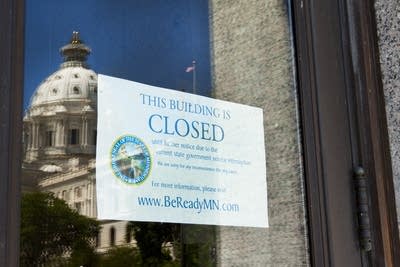Public employee contracts face tough review
Go Deeper.
Create an account or log in to save stories.
Like this?
Thanks for liking this story! We have added it to a list of your favorite stories.

A legislative subcommittee is holding a hearing Thursday morning to discuss the recently negotiated state employee contracts.
Minnesota its two publi employee unions agreed on a contract that would increase pay for most workers by 2 percent and also increase health care co-pays.
Several Republicans in the Legislature have criticized the deal, saying it's out of line with what private employers are offering their workers.
Gov. Dayton is defending the contracts, saying nearly 20,000 state employees lost $68 million because of last year's state government shutdown.
Turn Up Your Support
MPR News helps you turn down the noise and build shared understanding. Turn up your support for this public resource and keep trusted journalism accessible to all.
"They're not going to get most of that back," he said, adding also that wages were frozen under the last contract.
Republican Rep. Steve Drazkowski of Mazeppa says the committee is expected to heavily scrutinize the agreements in light of the slow economy.
"When you got 175,000 Minnesotans without a job and you've got private sector companies that are struggling to keep their businesses alive and private sector employees that are struggling to keep their jobs, that's a difficult proposition for public sector folks to say 'We demand more,'" he said.
The contracts will take effect if the subcommittee accepts the language. The full Legislature would have to vote on the proposal if the panel rejects them. It isn't clear whether the committee will take any action at today's hearing.
Drazkowski says it's unlikely that the committee will vote on the contracts at today's hearing.
Dear reader,
Your voice matters. And we want to hear it.
Will you help shape the future of Minnesota Public Radio by taking our short Listener Survey?
It only takes a few minutes, and your input helps us serve you better—whether it’s news, culture, or the conversations that matter most to Minnesotans.




